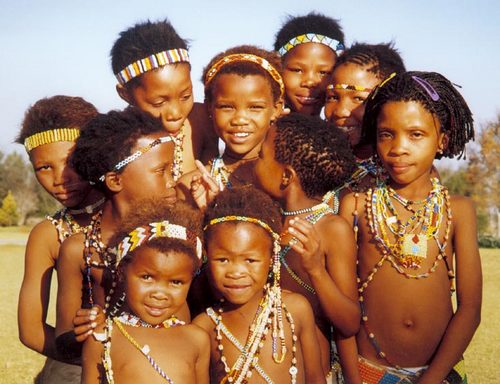It seems incredible to me that we have an ancient lineage of people existing today. That means that while the rest of the world was happily breeding with whomever, the Khoisan went their  own way. In order to find a common ancestor genetically we have to go back one hundred and fifty thousand years. That was the last time that someone looked attractive enough to a Khoisan against the background of the Kalahari that they went for it. That was the last time they deigned to notice us.
own way. In order to find a common ancestor genetically we have to go back one hundred and fifty thousand years. That was the last time that someone looked attractive enough to a Khoisan against the background of the Kalahari that they went for it. That was the last time they deigned to notice us.
Imagine what this means to a writer. The theme of ancient peoples living today, somehow forgotten in some corner of the world already crops up occasionally, but what if those people were a well-known group with an interesting, and perhaps ancient, language (The so-called click language of the Khoisan has 144 different phonemes and in that way is quite different than the imitative whistle language of La Gomera) and culture. They might have stories preserved from before desertification desiccated modern day Zimbabwe and Namibia. Instead, we have the slightly mocking but popular The Gods Must be Crazy and images from a dozen documentaries.
Perhaps when the curtain is withdrawn and we learn about all of our heritages lost as they are in the blankness of deep time, we will find out that we are an ancient people as well, that we somehow stumbled into the arms of a Neanderthal on the shores of the ever-romantic Mediterranean, before we wandered into Asia and then the rest of the world. What vestiges of stories do we have—such as Noah’s flood that may recall the flooding of the Black Sea and Beowulf’s long battle against the beast within and without our doors—that lie untapped except by Hollywood retellings and Disney flatulence?
